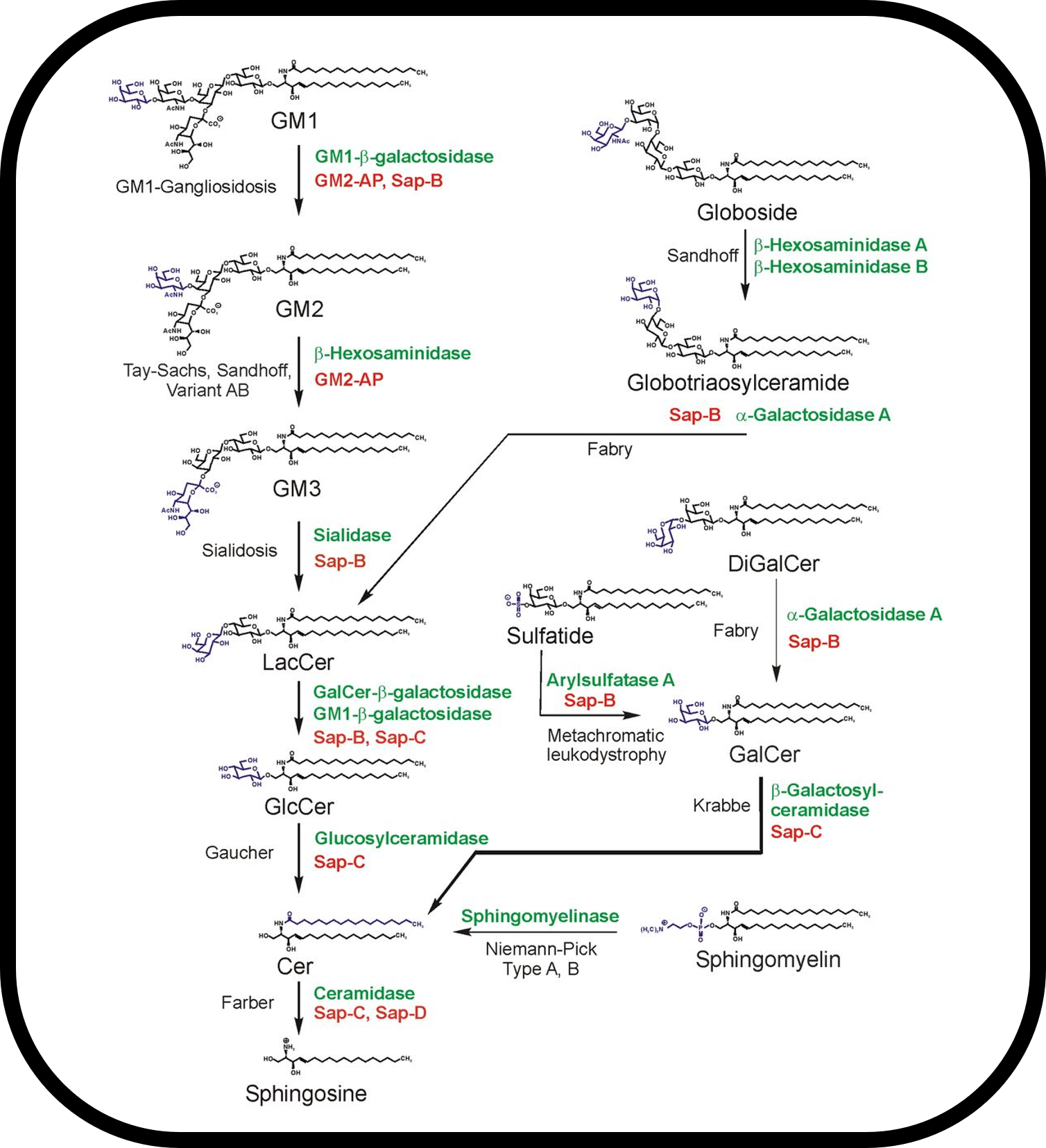Our group is interested in the molecular pathology of multiple neurodegenerative diseases, including lysosomal storage diseases (LSDs) and synucleinopathies (SPs), and how these conditions respond to novel treatment strategies. LSDs are inherited metabolic diseases characterized by the deficiency of a single digestive enzyme, resulting in the accumulation of toxic levels of shpingolipids that would normally be metabolized by the cell. Despite their prevalence, only a handful of the ~60 LSDs have FDA-approved therapies. Complicating the development of efficacious treatments for LSDs is a poor understanding of the spatial location within the central nervous system where substrates and secondary metabolites accumulate. We are mapping metabolite markers of neurological disease progression and monitoring amelioration of these pathogenic biomarkers upon treatment. Alternatively, SPs are characterized pathologically by the presence of Lewy bodies, composed of misfolded alpha synuclein (α-syn) inclusions and include dementia with Lewy bodies (LBD) and Parkinson’s disease (PD). These disorders are progressive, and result in the degeneration of dopaminergic neurons in multiple motor and non-motor basal ganglia circuits and there are unmet needs for delivering viable treatments to slow down progression of SPs. We are generating a spatial atlas of the lipidome to identify markers of disease progression and to monitor effective delivery of pharmaceutically well-defined antigens.

Collaborators
Dr. Gustavo, Maegawa, Columbia University Irving Medical Center – Maegawa Lab
Prof. Vinata Vedam-Mai, UF Department of Neurology – Vedam-Mai Lab
Current Funding: R61NS118407
